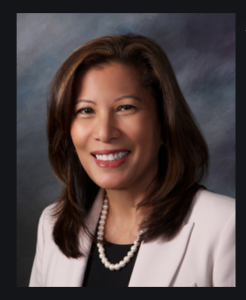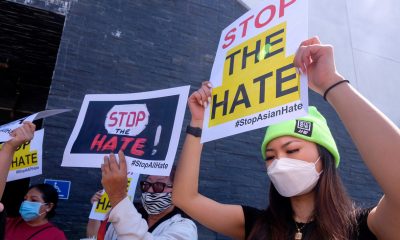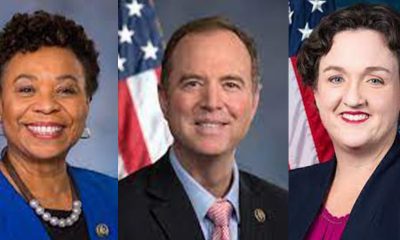#NNPA BlackPress
Thousands of Californians Face Homelessness With Eviction Freeze Set to End
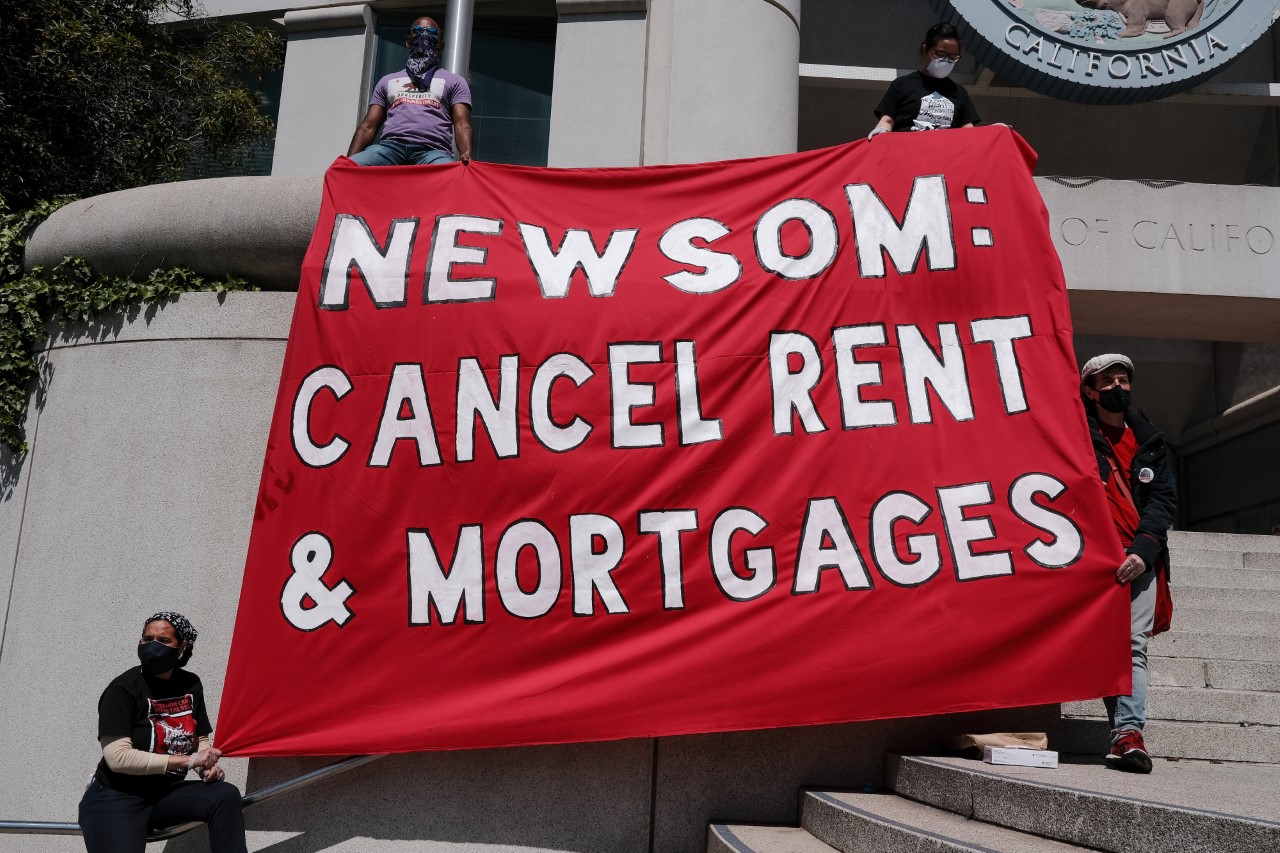
With the federal COVID-19 rent protections provided in the CARES Act about to expire, any plan to assist tenants who have fallen behind on their payments due to the COVID-19 pandemic, would have to be drawn up by state or local governments.
In California, Chief Justice Tani Cantil-Sakauye, chair of the Judicial Council, said, during a public meeting June 24 that the council would “very soon resume voting to terminate the temporary orders having to do with unlawful detainer evictions and foreclosures.”
The Judicial Council, which regulates the state’s court system, placed a temporary emergency rule on April 6, which stops judges from processing evictions for non-payment of rent during the COVID-19 state of emergency. If the court votes to terminate the rule, it would be rescinded effective Aug. 14, 2020.
Nisha Vyas, senior attorney at the Western Center on Law and Poverty spoke at a press conference held by Ethnic Media Services. In her presentation, she detailed some mechanics of the Judicial Council’s rules and she explained how its rescission would hurt California renters.
“We’re extremely concerned about this, as the Legislature and governor have not yet acted to put something in place that will prevent the massive wave of evictions that will begin when this rule is lifted,” Vyas told California Black Media over email.
“When the rule is withdrawn and the moratorium lapses, we expect this massive eviction crisis, and if we allow the evictions to simply start again without any long-term assistance, it’s going to have a devastating impact on renters, and in particular communities of color.”
Lifting the statewide eviction moratorium would disproportionately affect Black Californians. According to the U.S. Census Bureau’s 2015 American Housing Survey, 64.4% of African Americans in California are tenants. Also, 57% of Black renters have lost income since mid-March this year, according to the Census Bureau’s Household Pulse Survey.
According to another U.S. Census Bureau Housing Pulse Survey conducted in June, only about 46 % of Black renters in California were confident that they could pay July’s rent. The other 54% – which accounts for hundreds of thousands of African American households – have none to moderate confidence that they will be able to keep a roof over their heads.
During the public meeting, Chief Justice Cantil-Sakauye also said that the Aug. 14 deadline would give the state Legislature the chance to pass legislation regarding tenant protections.
AB 1436, authored by Assemblymember David Chiu (D-San Francisco) protects tenants from eviction due to non-payment of rent during the COVID-19 pandemic; allows landlords and tenants to work out payment arrangements for no more than the amount the renter owes; shields the tenant from negative credit reporting and protects his or her ability to rent in the future; and places the eviction process under the authority of civil courts; among other provisions. It also gives a 15-month grace period for unpaid rent after the COVID-19 state of emergency ends.
The bill passed the Assembly unanimously in May 2020 and is currently under review in the Senate Judiciary Committee. It is sponsored by multiple housing justice organizations, including the Western Center, PolicyLink and Housing NOW California.
According to Vyas, solving past due rent disputes in civil court rather than through the evictions process would be better for renters. Eviction proceedings are typically fast-tracked, with nearly 75% of eviction cases resolved within 45 days of filing, and many low-income tenants cannot afford an attorney.
“The advantage is that tenants would be able to remain in their homes. They could handle the rent payment dispute with the landlord in a proceeding that doesn’t put them at risk of homelessness. It would also prevent unnecessary and harmful interactions with law enforcement since lockouts are performed by sheriffs,” said Vyas.
Through e-mail, Vyas also pointed out that Californians would need assistance on the federal level as well, preferably through monetary rental assistance. But on the state level, Vyas said, AB 1436 is a necessary step.
“AB 1436 is a chance for communities and individuals to tell their state legislators here in California to stop the new wave of evictions to keep us all safe and housed. It is, I want to stress, the first step of many that we need to take to bring more equity into housing in California. But this is a great way for people to become engaged.”
#NNPA BlackPress
Why Not Voting Could Deprioritize Black Communities
NNPA NEWSWIRE — President Biden’s Justice40 initiative. This executive order ensures that 40% of federal investment benefits flow to disadvantaged communities, addressing deep-seated inequities.
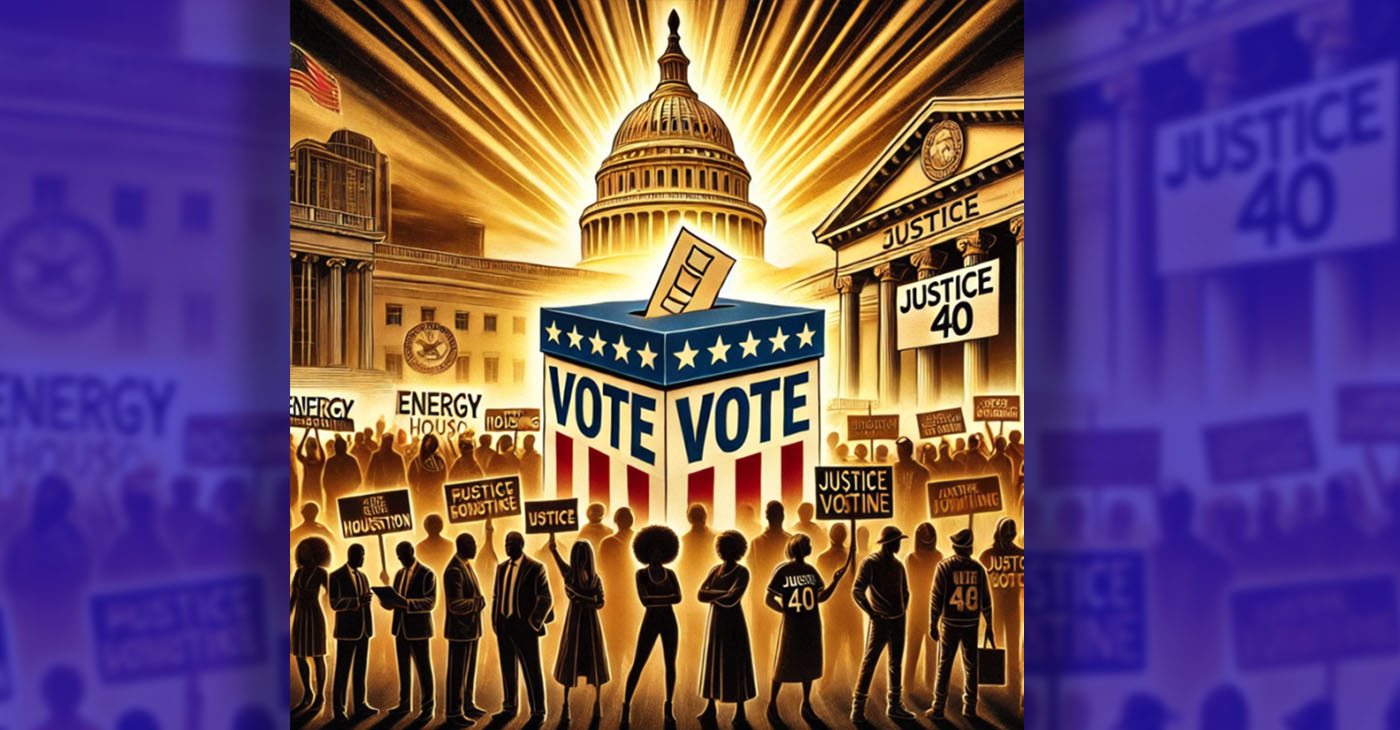
By Anthony Kinslow II, PhD
For generations, Black communities have been systematically denied the resources and opportunities provided to other American communities. Justice40 is more than a Biden-Harris initiative — it ensures a financial commitment to restore communities from historical inequities and bring lasting investment where needed most. It doesn’t matter if you don’t love Vice President Kamala Harris, are skeptical about her policies, or dislike her background as a prosecutor. If we want to see the progress and resources for Justice40 communities continue, we need to vote for her. The stakes in this upcoming election go beyond personal feelings and political preferences. A crucial piece of policy that directly impacts Black communities across the country is on the line:
President Biden’s Justice40 initiative. This executive order ensures that 40% of federal investment benefits flow to disadvantaged communities, addressing deep-seated inequities. Because the initiative was instituted via executive order if we don’t have President Kamala Harris in November, the executive order will likely be struck down. Justice40 touches every federal department—housing, education, transportation, energy, environmental protection, and much more. Using a broad range of metrics to define disadvantaged communities, the program is designed to avoid legal challenges while ensuring that many Black communities benefit from these federal investments.
Despite this historic initiative, much of the progress to implement this initiative could be undone by the results of this election. Justice40 is an executive order, and like all executive orders, it can be canceled with the stroke of a pen by the next president. If a Republican administration takes over, there’s every reason to believe this effort will be scrapped, especially with Trump’s explicit desire to reverse Biden’s policies. This is why we must cast our vote. This isn’t just about a candidate– it’s about securing a future where Black communities are finally prioritized.
In a Harris administration or a continued Biden-Harris presidency, we can expect the Justice40 program to grow and be further institutionalized. This progress has already started slowly but surely in departments such as the Department of Energy (DOE), the Department of Transportation (DOT), the Environmental Protection Agency (EPA), and the United States Department of Agriculture (USDA), with leaders working on systemic change. I know Many of our people in these positions working to make meaningful, lasting changes. This is in stark contrast to Trump’s presidency. While government work is always slow, the groundwork is being laid. For this progress to take root and continue benefiting our communities, voting to preserve it is essential. This is our vote to keep federal funds flowing to our neighborhoods.
SO, VOTE! Together, we can ensure that the Justice40 program continues to grow and uplift communities that have been left behind for far too long.
#NNPA BlackPress
From the March to the Ballot: Honoring the Legacy of Our Fight for Justice in 2024
OP-ED: Think of the brave souls who walked through hostile crowds, the organizers who endured long nights of planning, and the thousands who faced violence just to secure the right to vote. When Dr. King led the Selma marches in 1965, he and countless others faced brutal attacks because they knew that equality at the ballot box was the key to justice.
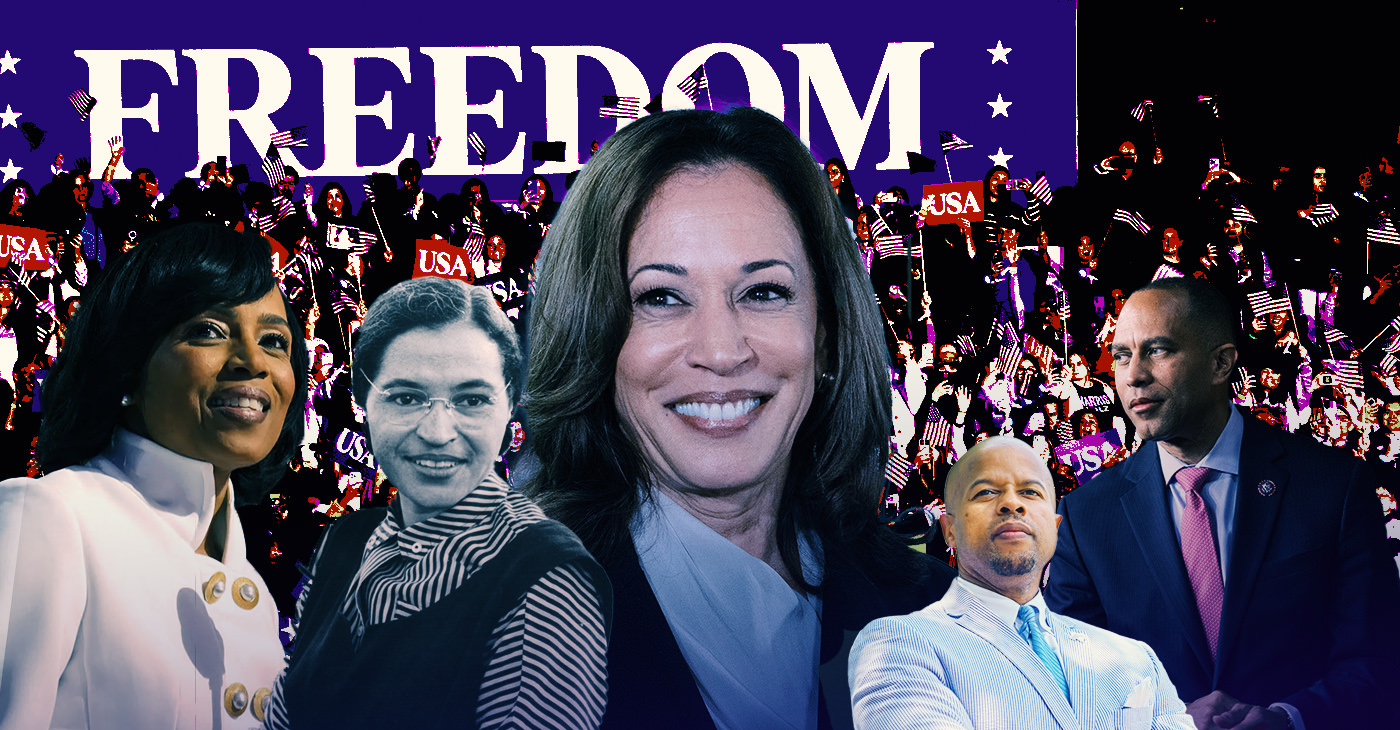
In 1955, on that faithful day in Montgomery, Alabama, Rosa Parks took a seat on a bus and sparked a movement that would forever alter the course of history. Her quiet act of defiance was supported by leaders like E.D. Nixon, who had long been organizing Black communities and fighting for justice. That single, powerful moment ignited the Civil Rights Movement, leading Dr. Martin Luther King Jr. to march on Washington in 1963, where he declared his dream for a just America—a dream he knew could only be realized if every American had an equal say in their democracy.
As we approach the 2024 election, we stand on the shoulders of those who risked everything for this fundamental right. They marched, organized, and even gave their lives so that future generations would never face the oppression they did. The battles they fought didn’t end in the 1950s and ’60s; they continue today, and their sacrifices demand that we make the most of our right to vote. This election is our moment to honor that legacy.
This year, our votes hold more than just political weight; they’re the latest step in a struggle that has spanned decades. Think of the brave souls who walked through hostile crowds, the organizers who endured long nights of planning, and the thousands who faced violence just to secure the right to vote. When Dr. King led the Selma marches in 1965, he and countless others faced brutal attacks because they knew that equality at the ballot box was the key to justice. Today, we’re called to continue that fight by showing up, standing up, and making sure that every vote for progress is counted.
This election is about more than just policies or party lines; it’s about the future of Texas, the United States, and our communities. It’s about choosing leaders who will stand against injustice, fight for economic equality, and protect the well-being of all Texans. We need leaders like Colin Allred in Texas, who will champion progress, and Kamala Harris leading on the national stage, guiding us toward a brighter, more inclusive future. And we also need to elect leaders like Angela Alsobrooks to the U.S. Senate in Maryland, who will continue the fight for justice and equality. If we can flip the House, we’ll have the chance to make history with Hakeem Jeffries as the first African American Speaker of the House. But none of this progress is possible without each of us using our vote.
On that fateful day in 1955, Rosa sat so that others could one day stand up and demand equality and justice. In 2024, we have the chance to fulfill that legacy—not just by casting our own votes but by mobilizing our communities and ensuring that every voice is heard. Let’s make 2024 a year they would be proud of—a year where we move forward together, united, for a fairer, more inclusive America. Kamala is ready to run, and now we must do our part. This is our moment to make history, honor the past, and secure the future.
#NNPA BlackPress
A Historic Closing Argument
Evoking images of marches and a vision of unity, she said, “I grew up as a child of the civil rights movement.” She said, “My parents took me to those marches, pushing me in a stroller through crowds of people of all races, faiths, and walks of life, all fighting for the ideals of freedom and opportunity. I’ve lived the promise of America.”
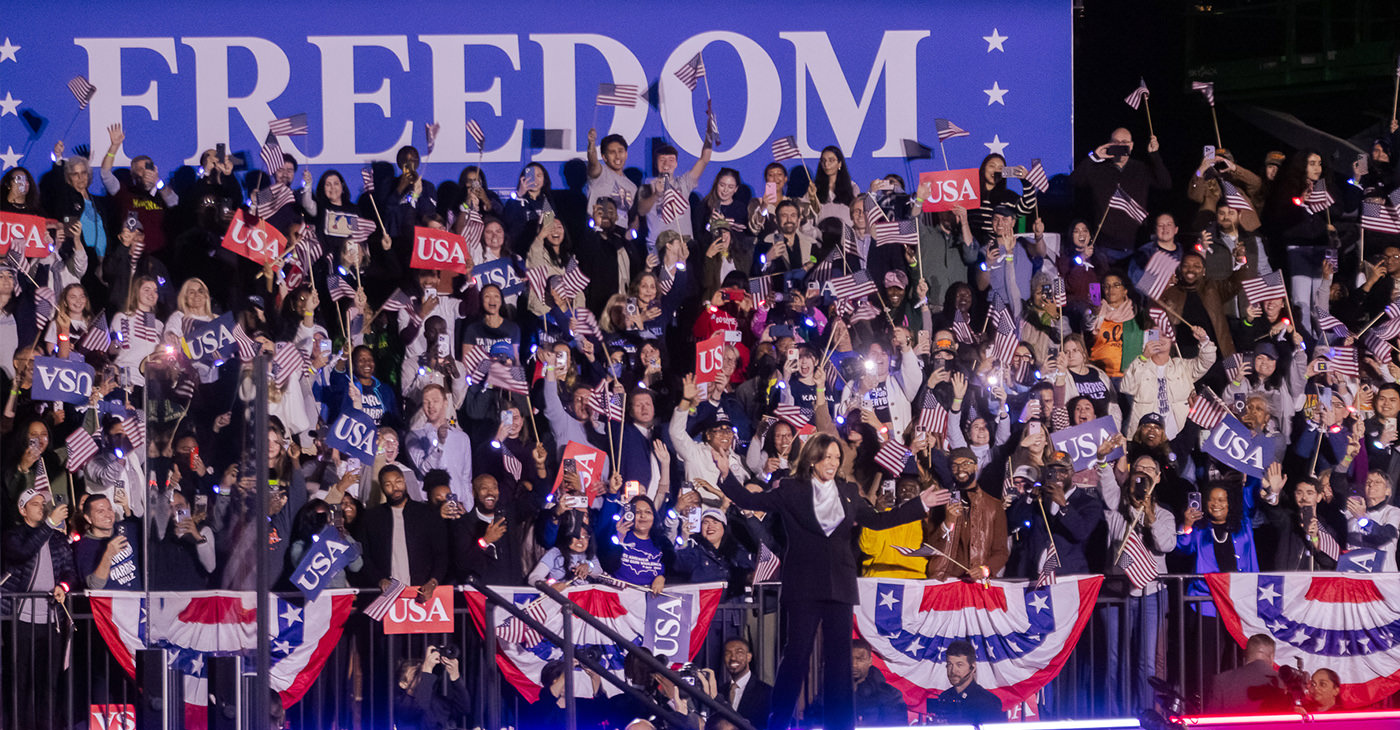
By Stacy Brown, Sr. and Greer Marshall
With just one week until the pulse of the nation beats at the ballot box and over 51 million votes already cast, Kamala Harris stood before an audience Tuesday night that outgrew its bounds. What was once imagined as an intimate gathering of 8,000 souls evolved into an ocean of hope, a swelling tide of support that illuminated the final stretch of her journey, with over 75,000 people gathering at the Ellipse in our nation’s capital.
At 7:37 pm, under a sky heavy with purpose, Harris stepped onto the stage, embraced by a wave of thunderous love—a scene lit in flashing reds and blues, where applause rolled like a breaking tide. Her spirit was ablaze as she lifted her voice: “Good evening, America!” Each word rose above the chants of her name, pulsing through the crowd, “Kamala, Kamala.” Her gaze remained steady and with reverence for each life present as she continued to speak. “Thank you for taking the time out of your busy lives.” When she paused, it was clear that she was feeling the weight of the moment. With clear conviction, she said, ”One week from today, you will have a chance to make a decision that directly affects your lives, the lives of your family, and the future of this country. It will probably be the most important vote you’ve ever cast,” she said. Beyond selecting between two parties and two candidates, she said, “It’s about more than just making a choice—of whether you have a country of freedom or one ruled by division.”
Emphasizing her focus on “common ground and common-sense solutions,” Harris promised to hold space for all, regardless of creed or corner of the country. “I am not here to play politics; I am here to make progress,” she proclaimed, as “Freedom” and “USA” banners waved above the crowd like living symbols. “Unlike Donald Trump, I don’t believe people who disagree with me are the enemy. He wants to put them in jail. We have to stop pointing fingers and start locking arms. It’s time to turn the page on the drama, conflict, fear, and division,” Harris advises.
The atmosphere was pulsating, like a never-ending fiesta for the soul. To secure her spot, Fatimah Glasnow came five hours early from Southeast D.C. and said she was deeply moved. “The feeling here is hope, love, and peace,” Glasnow said. “An America where we can all thrive, regardless of our race or gender. I needed this kind of energy in my life.”
Glasnow felt seen and empowered, and her faith was renewed by Harris’ words, especially on issues of social and maternal justice. “She’s advocated for social justice and, really, justice itself.”
For Harris, this gathering was more than a rally; it was a moment to lay bare the heart of her mission, a testament to what fuels her as a leader. There’s something about people being treated unfairly or overlooked that, frankly, just gets to me,” she shared. “I don’t like it. It’s what my mother instilled in me—a drive to hold accountable those who use their wealth or power to take advantage of others.”
When addressing the fall of Roe v. Wade, her resolve was clear. She promised America, “I will fight to restore what Donald Trump and his hand-selected Supreme Court justices took away from the women of America.” With this pledge, Harris reaffirmed her steadfast commitment to preserving and expanding civil rights.
Capitol Hill resident Leander Davis, a social services worker, said Harris’ words resonated deeply. “She’s all of us,” Davis said. “She’s been criticized, ostracized, demonized, and called all sorts of names, yet she hasn’t stopped fighting for what’s right. When she’s president, we will all be better off.”
Harris’ campaign is woven from a life spent challenging injustice and protecting those vulnerable. This was personal. As her words echoed, the crowd’s response was nothing less than electric. Harris made it clear: Her campaign was a call to action. Vowing, “If you give me the chance to fight on your behalf, there is nothing in the world that will stand in my way.”
A striking contrast to the divisive language that has marked Trump’s racist rhetoric, Harris did not shy away from the comparison. “If elected, Donald Trump would walk into that office,” Harris said, gesturing toward the White House, “with an enemies list. When elected, I will walk in with a to-do list.” Her words painted a vision of governance rooted not in vengeance but in purpose. Her administration, she pledged, would focus on practical solutions: lowering costs, supporting working families, and rekindling a sense of unity and shared ambition across the nation.
Though her years as Vice President under President Joe Biden had been an honor, Harris acknowledged the urgency of a new direction. “I have been honored to serve as Joe Biden’s vice president,” she said. “But I will bring my own experiences and ideas to the Oval Office. My presidency will be different because the challenges we face are different.” Her voice conveyed both respect and determination—a promise to carry forward Biden’s legacy but forge a new path to meet America’s evolving needs.
The vice president confronted the charged topic of immigration, calling for accountability and cooperation. “Politicians have got to stop treating immigration as an issue to scare up votes in an election—and instead treat it as the serious challenge that it is,” she said, “that we must finally come together to solve.” She also insisted that “I will work with Democrats and Republicans to sign into law the border security bill that Donald Trump killed.”
Harris said while she will focus on prosecuting cartels and transnational gangs, “we must acknowledge we are a nation of immigrants.” Vowing to push for change that would reflect the country’s roots and values. Harris said, “And I will work with Congress to pass immigration reform, including an earned path to citizenship for hardworking immigrants, like farmworkers and our laborers.”
As her speech reached its crescendo, Harris delivered a final rallying cry. “America, we’ve been consumed by division, chaos, and mistrust for too long. But it doesn’t have to be this way,” she proclaimed, her voice rising with passion. “It is time for a new generation of leadership, and I am ready to offer that leadership as the next President of the United States.”
Evoking images of marches and a vision of unity, she said, “I grew up as a child of the civil rights movement.” She said, “My parents took me to those marches, pushing me in a stroller through crowds of people of all races, faiths, and walks of life, all fighting for the ideals of freedom and opportunity. I’ve lived the promise of America.”
Her voice was thick with memory and gratitude as she reflected on her mother’s sacrifices and determination, sharing, “I saw how hard our mother worked to give her daughters the same chances this country gave her,” Harris said. “Growing up, I was blessed to have family by blood and family by love, who instilled in me the values of community, compassion, and faith that have always defined our nation at its best. I’ve lived the promise of America.”
In her closing remarks, her face reflected the nation’s hopes and struggles. “I’ve spent my life fighting for the people who have been hurt and counted out, but never stopped believing that in our country anything is possible,” Harris said. “I have lived the promise of America, and I see the promise of America in all of you. In all of you, I see it.”
Harris’ message was unmistakable: this was a campaign fueled by purpose and people and grounded in the unyielding pursuit of justice. More than a candidate, Harris stood as a bridge to a future where leadership meant action and inclusion, a vision built on the resilience and spirit of every American she vowed to serve.
In these final days of her campaign, Harris stands at the crossroads of dreams and demands. Surrounded by an ocean of optimistic faces, on this night, Harris underscores the magic of the moment. She reminds us that our decision was more than just a vote—it was a breath of courage, a step toward a world remade.
-

 Alameda County1 week ago
Alameda County1 week agoAlameda County District Attorney Pamela Price Announces $7.5 Million Settlement Agreement with Walmart
-
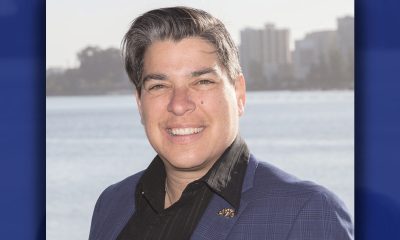
 Activism2 weeks ago
Activism2 weeks agoOP-ED: Hydrogen’s Promise a Path to Cleaner Air and Jobs for Oakland
-
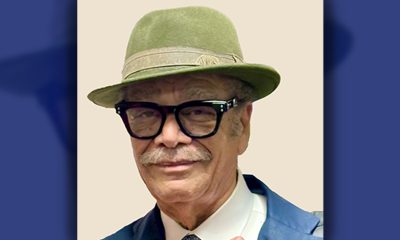
 Activism3 weeks ago
Activism3 weeks agoCOMMENTARY: DA Price Has Done Nothing Wrong; Oppose Her Recall
-

 Activism3 weeks ago
Activism3 weeks agoBarbara Lee, Other Leaders, Urge Voters to Say ‘No’ to Recalls of D.A. Pamela Price, Mayor Sheng Thao
-

 Bay Area3 weeks ago
Bay Area3 weeks ago2024 Local Elections: Q&A for Oakland Unified School Candidates, District 3
-
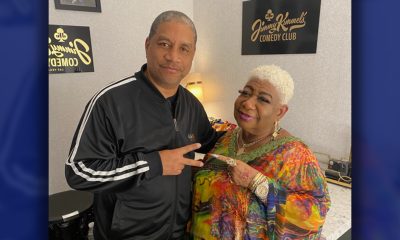
 Community2 weeks ago
Community2 weeks agoTerry T. Backs Oakland Comedy Residency by Oakland’s Luenell at Jimmy Kimmel’s Comedy Club in Las Vegas
-

 Activism3 weeks ago
Activism3 weeks agoOakland Post: Week of October 9 – 15, 2024
-

 Business2 weeks ago
Business2 weeks agoStudy Confirms California’s $20/Hour Fast Food Wage Raises Pay Without Job Losses

